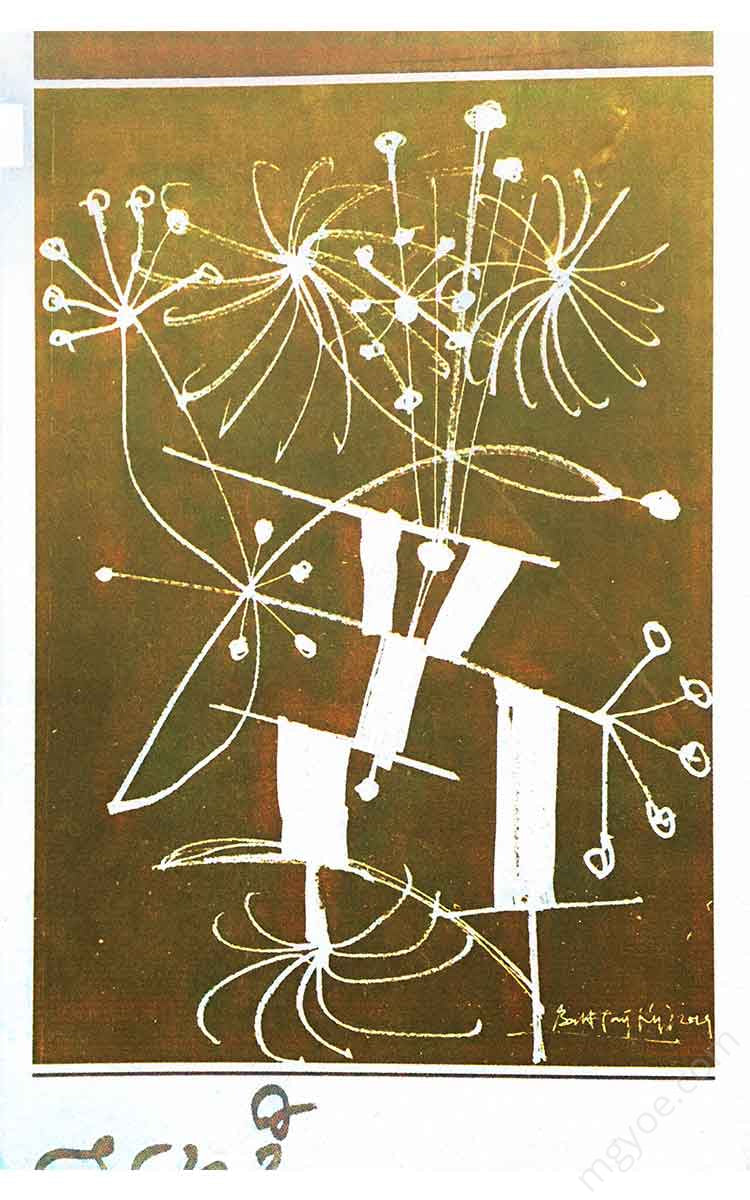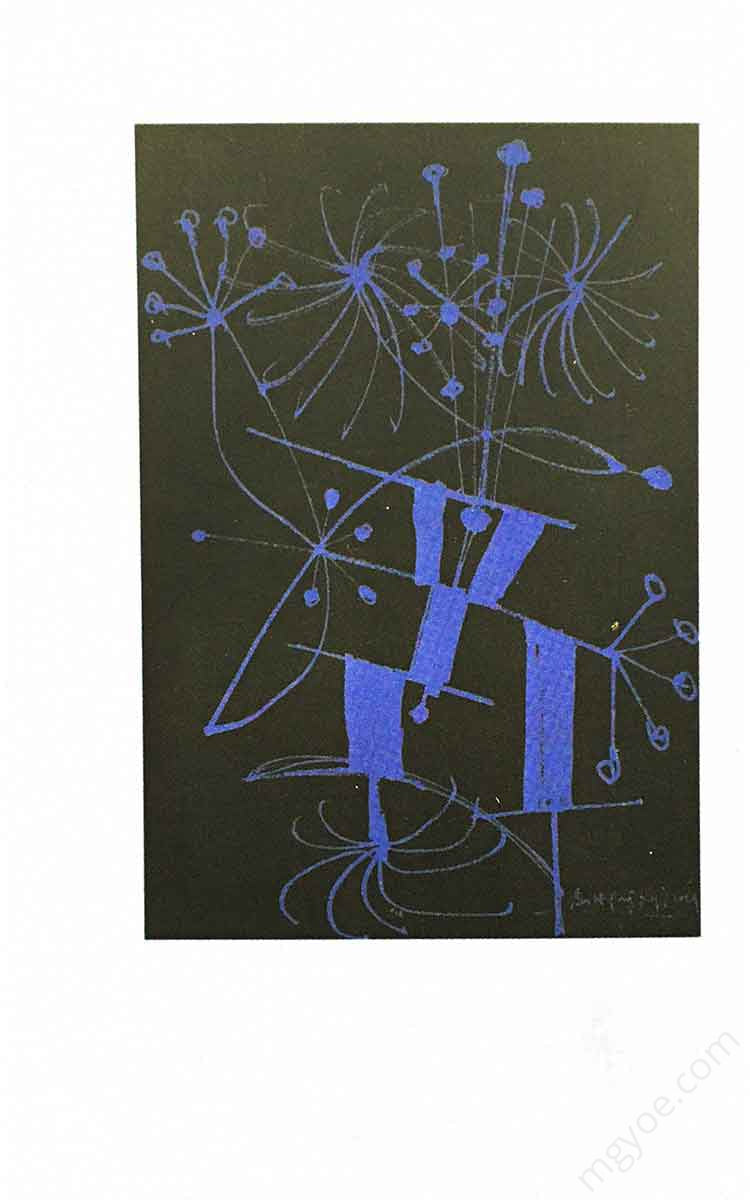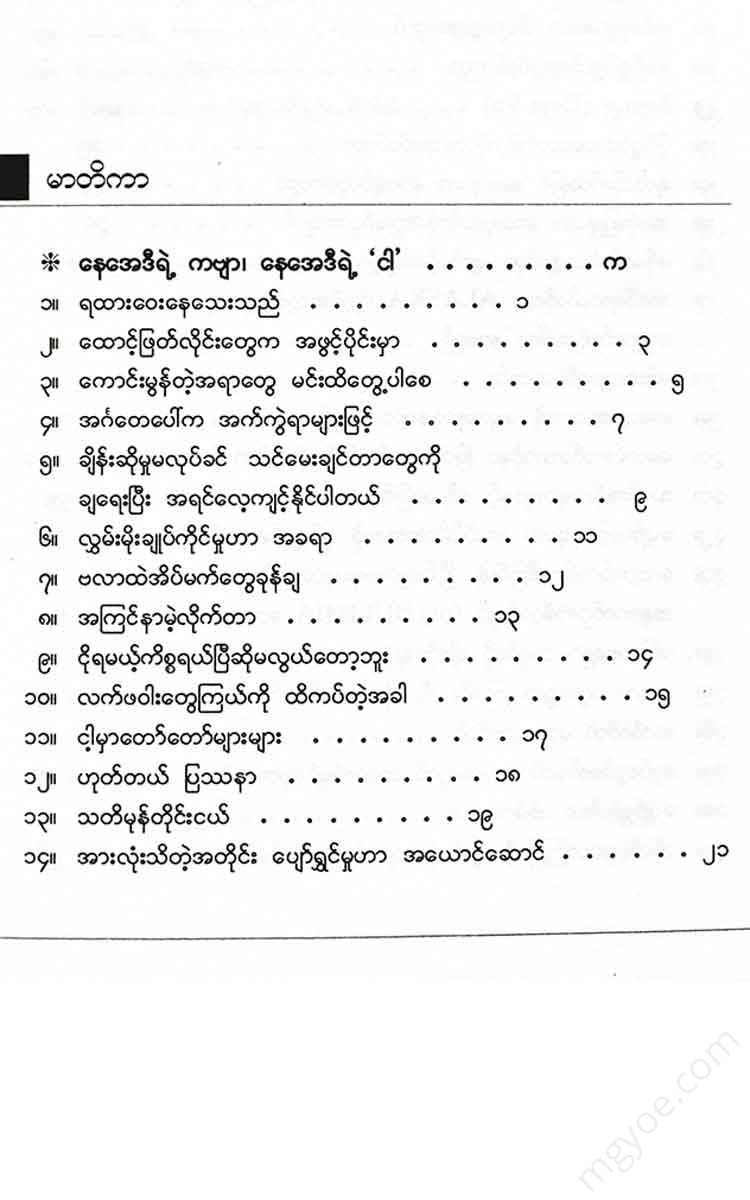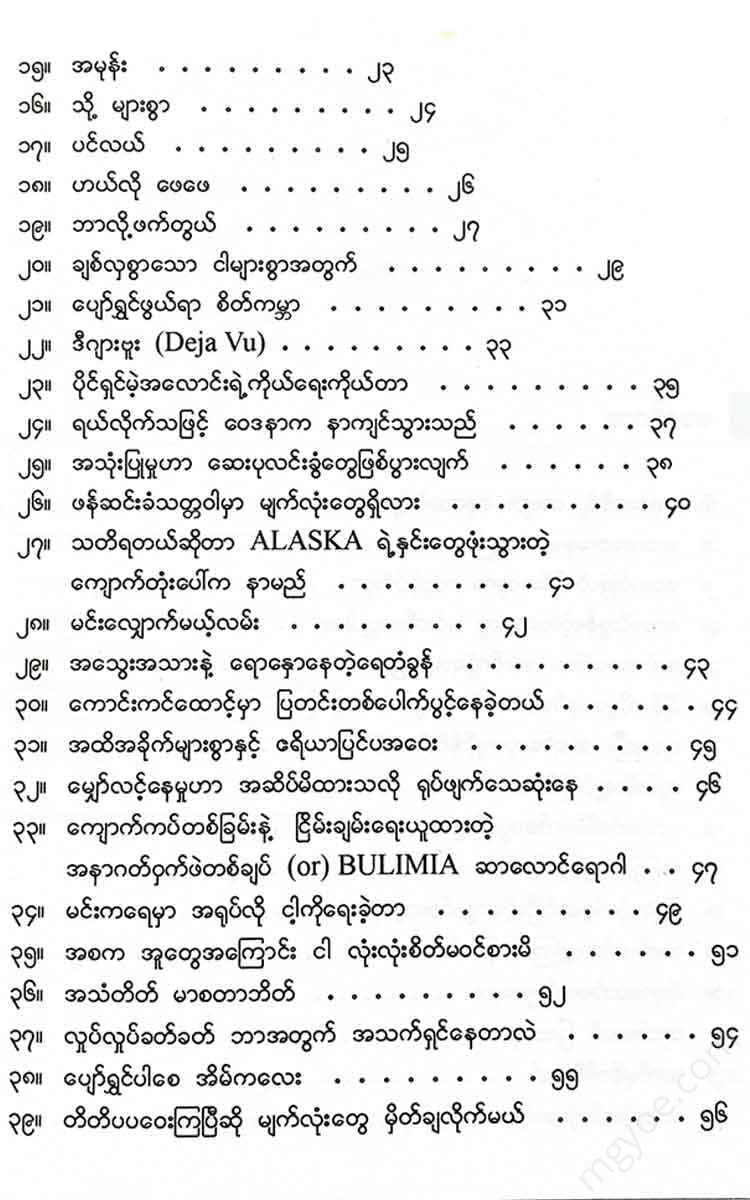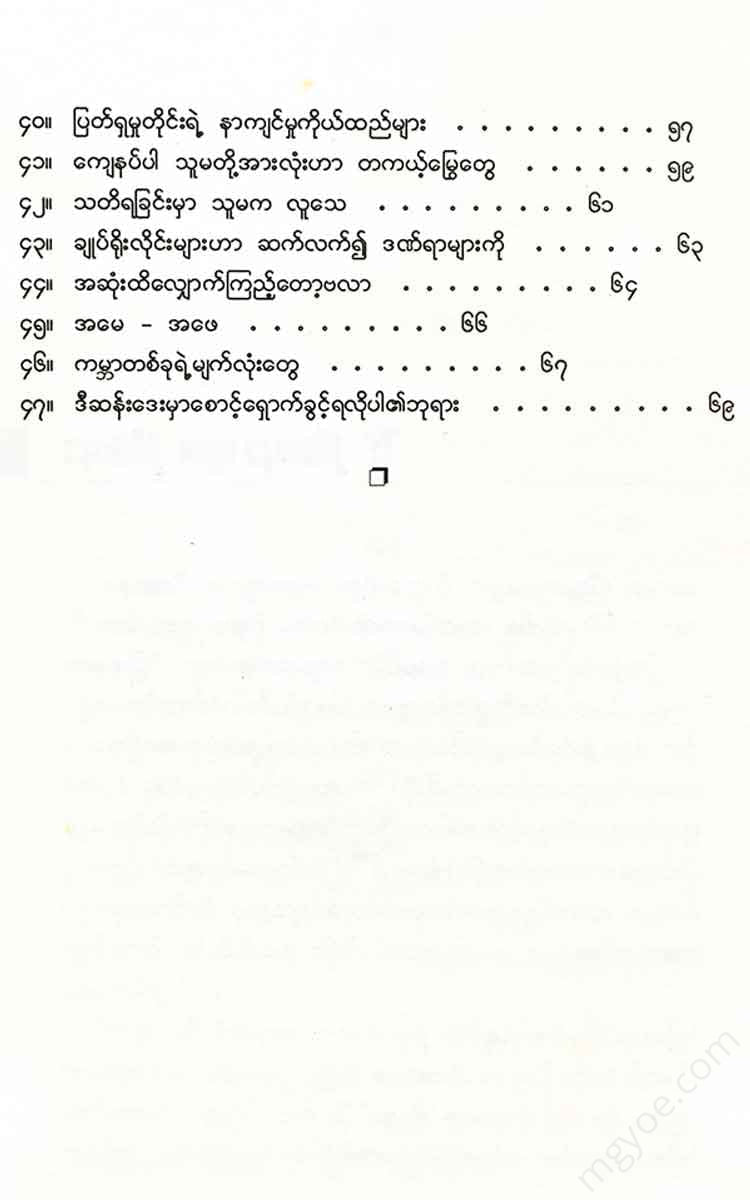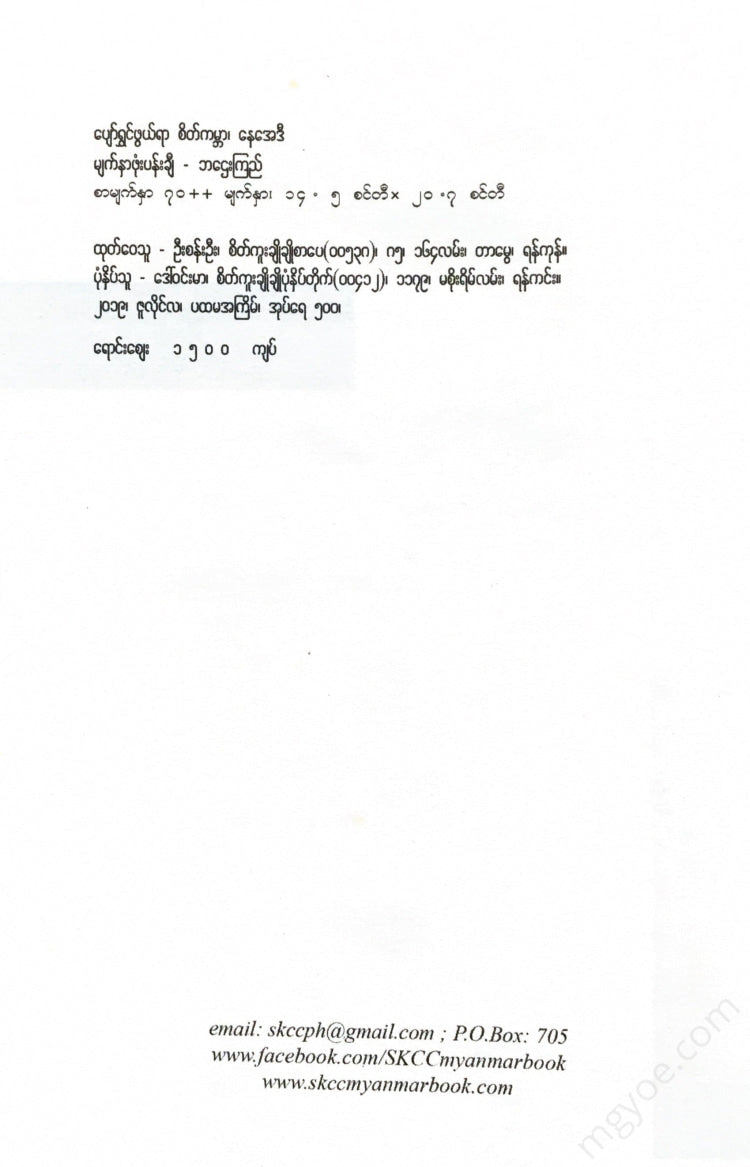စိတ်ကူးချိုချိုစာပေ
Naedi - A happy world
Naedi - A happy world
Couldn't load pickup availability
Nay Adi asked me to select poems for his poetry book and write a poem with them. I accepted, not only because of our closeness but also because I felt that a book of his poetry should be published. I read the poems. I looked for ideas to write a poem about. As I read the poems, it suddenly occurred to me that I was reading poems, not Nay Adi. In the poems I was reading, the voice of “I” (or “I”) in the poems was inescapably loud and clear. I followed it. Nay Adi’s poetry, Nay Adi’s “I”.
“Poetry” in this context is the emotional experience that the reader gets from the writing/text through the way they read it. That is, it is the emotional experience that the “material” gives (or receives) from that “material” rather than the “material”. In other words, it is the emotional experience that the poem gives (or receives) from the reading of the poem. Where this emotional experience comes from is the depth of the three-pronged issue. It comes from the writer, from the writing/text, and from the reader. It is not something that can be measured or calculated, nor is it something that can be captured in a box. I think it is something that occurs entirely in the individual’s ego. It is not the same as each other, it is not a linear concept, it is not a singular concept, it is a multiplicity.
Since it was created to be a poem, I do not read it as a “confessional” writing of the subject, Naedi. I do not take the “I” in the poem as Naedi’s autobiographical “I” (or “I”), but rather as the “Lyric ‘I’ in the poem. I focus on the fact that I am composing the poem rather than telling the real events of Naedi. I ignore whether this “I” is Naedi himself, or his avatar, or his representative, etc. Because I also want to structure my reading of the poem. I only read the “Self/Self” in the poem. I do not read Naedi. I can also say that I am reading the structure of the “I” in the poem, right?
(2)
Lyric poetry is a form of poetry that focuses on the experience of the speaker, the “I,” in the poem. It has existed since ancient times. It is a form of poetry that expresses personal feelings. For those who accept that “poetry is the expression of the poet’s feelings,” there is a misconception that poetry is lyrical and that lyric poetry is poetry. This misconception has been around for centuries. This misconception was shattered by Language Poetry (LP) around 1970, along with postmodernism and poststructuralism. The main problem is the lyrical “I” and language. I don’t want to go into detail. If you want to know, there are articles and books I have written. If you don’t know, you can. It’s not a problem for me. In the American poetry world of the 1990s, unique poems (pieces) emerged. LP’s expansion of poetic scope, the development of new poetic techniques, the use of self, language, Poems that have been created by accepting and transforming existing poetic knowledge and creating a new form of lyric poetry. Hybrid poems that are neither LP nor lyric. Post-Language Lyric These are poems that have been called “lyric beyond language poetry.”
Let it be. The message is not a lecture. Is it? Neady's poems are lyrical. They are ""-centered poems. That "I" is usually the "I" of the individual, the "I" of the individual, rather than the "social I" that is constructed by society. The lyrical "I". For me, I like lyrical poetry and I am also interested in the lyrical "I". Because this lyrical "I" is the original nature, the original essence, the formed "I". Let me explain. Man has form. A name. The name of that human being
The mind is the realm of all mental things, where everything related to the mind is born, grows, stored, remembered, thought, felt, etc. It is the realm of both the conscious and the unconscious, as Western psychologists say. This entire realm is also called Subjectivity. The “I” that is extracted from this entire subjectivity to compose poetry is actually a construct. This construct “” does not represent the entire subjectivity, but is even contradictory to the subjectivity. (Don’t take my word for it, study it, check it, analyze it). (I respect the reader). We should also not forget that poetry is a play.
That is why the “I” in Naedi’s poems (lines) are lyrical “I”. They are “I”s that are extracted and constructed. It is a main element of lyrical poetry. It is a poetic element that is essential to writing lyrical poetry. In lyrical poetry, the “I” is a structural element of lyrical poetry. At least the protagonist. The one who carries the story.
(3)
In 1833, British philosopher John Stuart Mill wrote an article in The Monthly Repository titled: What is Poetry. It was during the British Romantic poetry movement. The article included the line 'Poetry is overheard'. "Poetry is overheard."
It is. To be precise, 'eloquence is heard; poetry is overheard'. Just as the Hla Tow people speak with eloquence, so too does the fact that they have a eloquent tongue.
You can hear speech with your ears. You can say "ha" and "heh" and so on. You can "learn" speech. You can't hear poetry with your ears. You can only hear it with your ears. You can hear speech completely. You know it's speech as soon as you hear it. You can only hear poetry with your ears.
The poet is referring to someone or something in his mind, and the outsider hears what he is saying only “in the corner of his ear.” He does not hear it fully. He is only paying attention to the impact of what he hears. “Taking attention” means “feeling” as well as “feeling”.
Lyric poetry is something that is heard “in the ear.” Not hearing everything is not saying everything. To tell the whole story is to make up a story (or a novel). Poetry is not like that. It is like spitting out the feelings in the poem to the listener. John Stuart Mill said that. (Look it up, it is interesting. Especially those who are filling their stomachs with poetry, don’t take it for granted. Don’t reject it for granted. Talking about poetry is also closely related to how we face life as a whole.) In Neady’s poems (lines), I can also hear the voice of “I” speaking in the ear.
